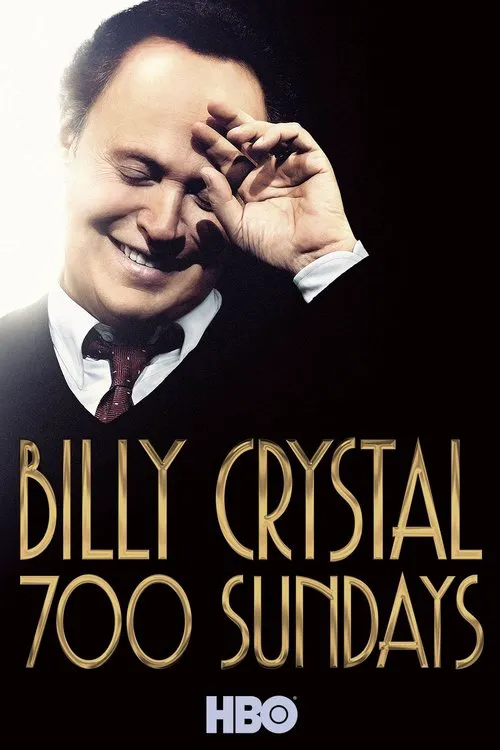Billy Crystal: 700 Sundays

Plot
The stage show "700 Sundays" is a poignant and comedic exploration of Billy Crystal's life, taking the audience on a journey through his childhood, teenage years, and young adulthood. The show is named after the 700 Sundays Billy's mother, Helen, would give to her family at dinner, filling their Sundays with laughter and music. The story begins with Billy's early life in New York City's Upper West Side, where he grew up in a family of modest means surrounded by the vibrant jazz scene. Billy's father, Jack, was a postal worker with a passion for the saxophone, and the house was filled with the sounds of jazz greats like Louis Armstrong and Charlie Parker. Billy's mother, Helen, was a strong and loving matriarch who kept the family close-knit and instilled in Billy a love of music and storytelling. One of the most memorable parts of the show is Billy's description of his father's love of jazz and his attempts to teach Billy how to play the saxophone. Despite his father's patience and enthusiasm, Billy's musical talents were lacking, and he often found himself frustrated and struggling to keep up with his father's lessons. However, it was during these lessons that Billy developed a deep appreciation for the music and the culture that surrounded it. As Billy grew older, he began to develop a sense of his own identity and a desire to connect with his father on a deeper level. He struggled with the fact that his father was a quiet and introspective man who rarely spoke about his feelings or his past. Billy's attempts to get his father to open up and share his stories were met with resistance, and Billy began to feel like he was losing his connection to the man he loved. The show also delves into Billy's teenage years and his experiences at the prestigious Yeshiva of Flatbush. Billy's Jewish upbringing and his love of comedy are both central themes in the show, and he shares humorous and poignant anecdotes about his time at the yeshiva. One of the most memorable stories is about Billy's attempts to navigate the complexities of teenage life, including his first crushes, his struggles with authority, and his desire to fit in with his peers. As Billy entered adulthood, he began to develop his own unique voice and sense of purpose. He discovered his love of comedy and began to make a name for himself in the entertainment industry. However, this journey was not without its challenges, and Billy struggled to balance his desire for success with his need for family and connection. One of the most poignant aspects of the show is Billy's description of his relationship with his father as Billy approached the end of his life. Billy's father had become increasingly frail and forgetful, and Billy struggled to come to terms with the fact that he was losing the man he loved. Through his storytelling, Billy shares the lessons he learned from his father and the ways in which he carried on his legacy through his own life and career. Ultimately, "700 Sundays" is a show about family, fate, and the power of storytelling. Billy Crystal's vivid and humorous anecdotes transport the audience to a bygone era, and his poignant reflections on love and loss will resonate deeply with anyone who has ever experienced the complexity and beauty of human relationships. Through his stories, Billy reminds us that even in the darkest moments, there is always hope and always the possibility of connection and transcendence. The show's structure is a nostalgic and affectionate portrayal of Billy's life, with each segment a vignette that captures a particular moment or era. From his childhood to his teenage years to his adult life, Billy takes us on a journey through the highs and lows of his life, revealing the ways in which his family shaped him and the choices he made. "700 Sundays" is not just a show about Billy Crystal's life, but also about the lives of everyone who has ever sat around a dinner table listening to a parent or grandparent's stories. It is a reminder that our lives are shaped by the people and experiences we love, and that even the smallest moments can have a profound impact on who we become.
Reviews
Recommendations



